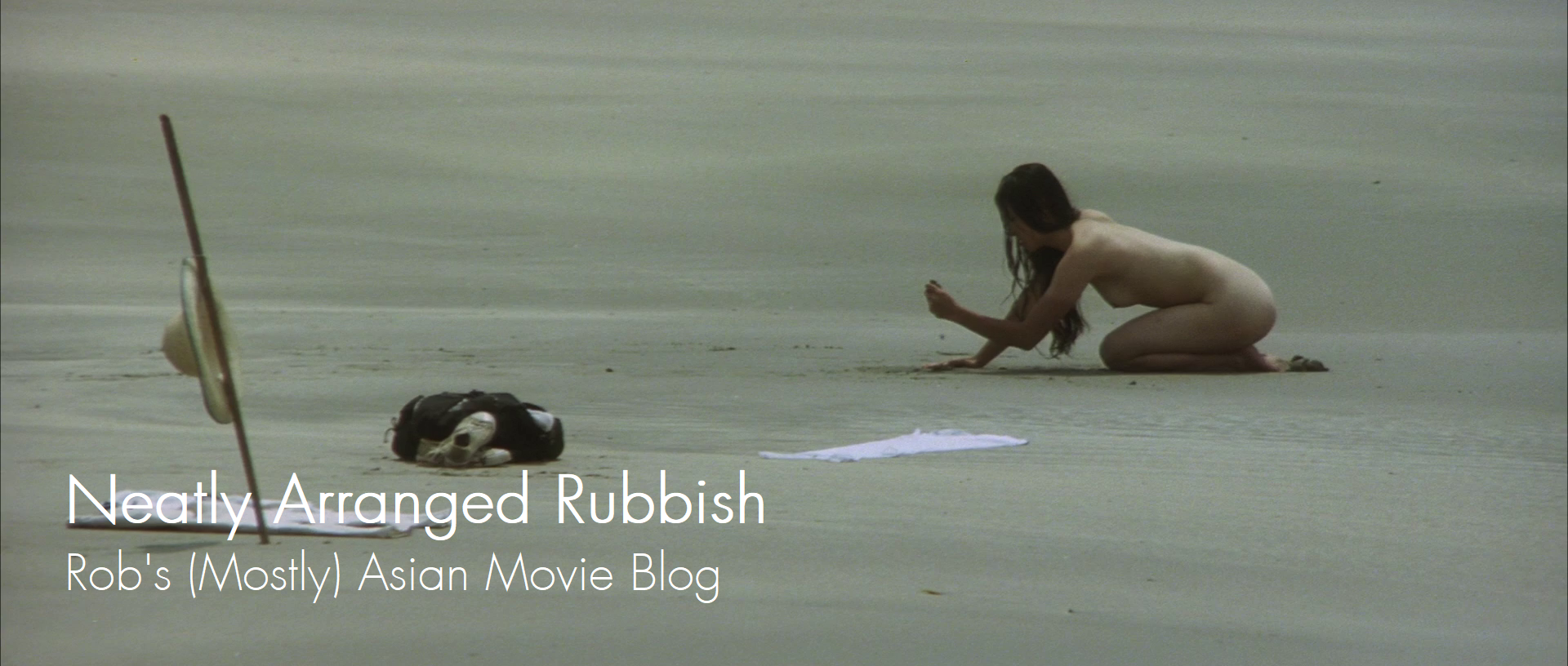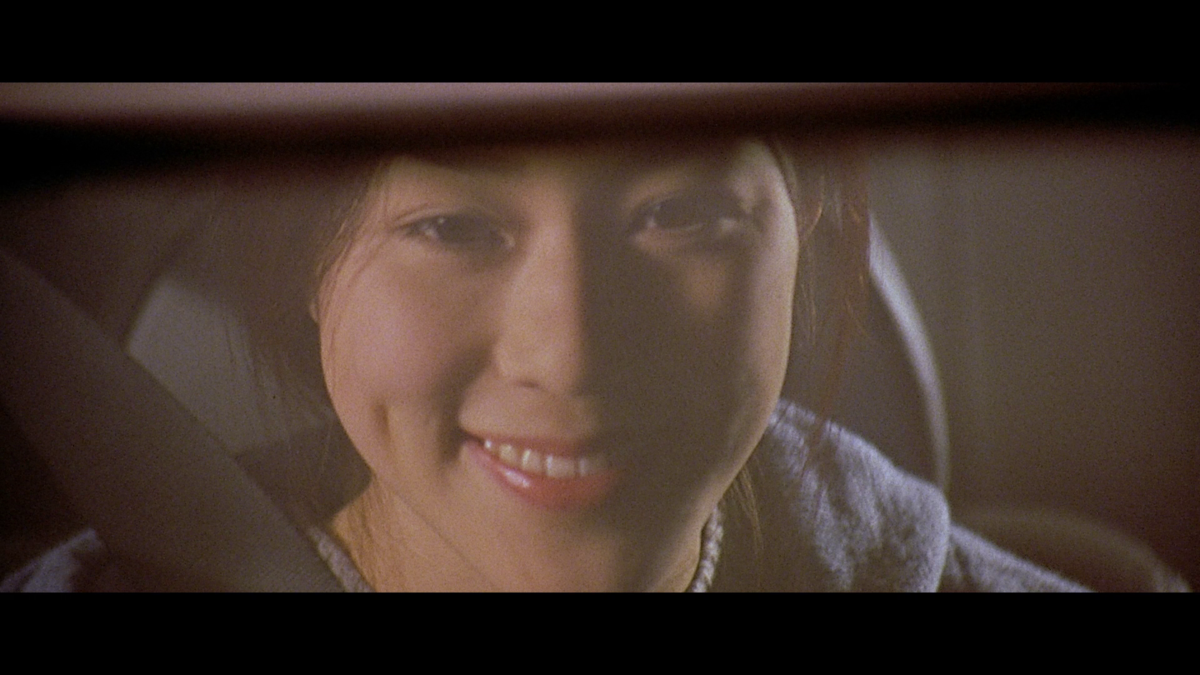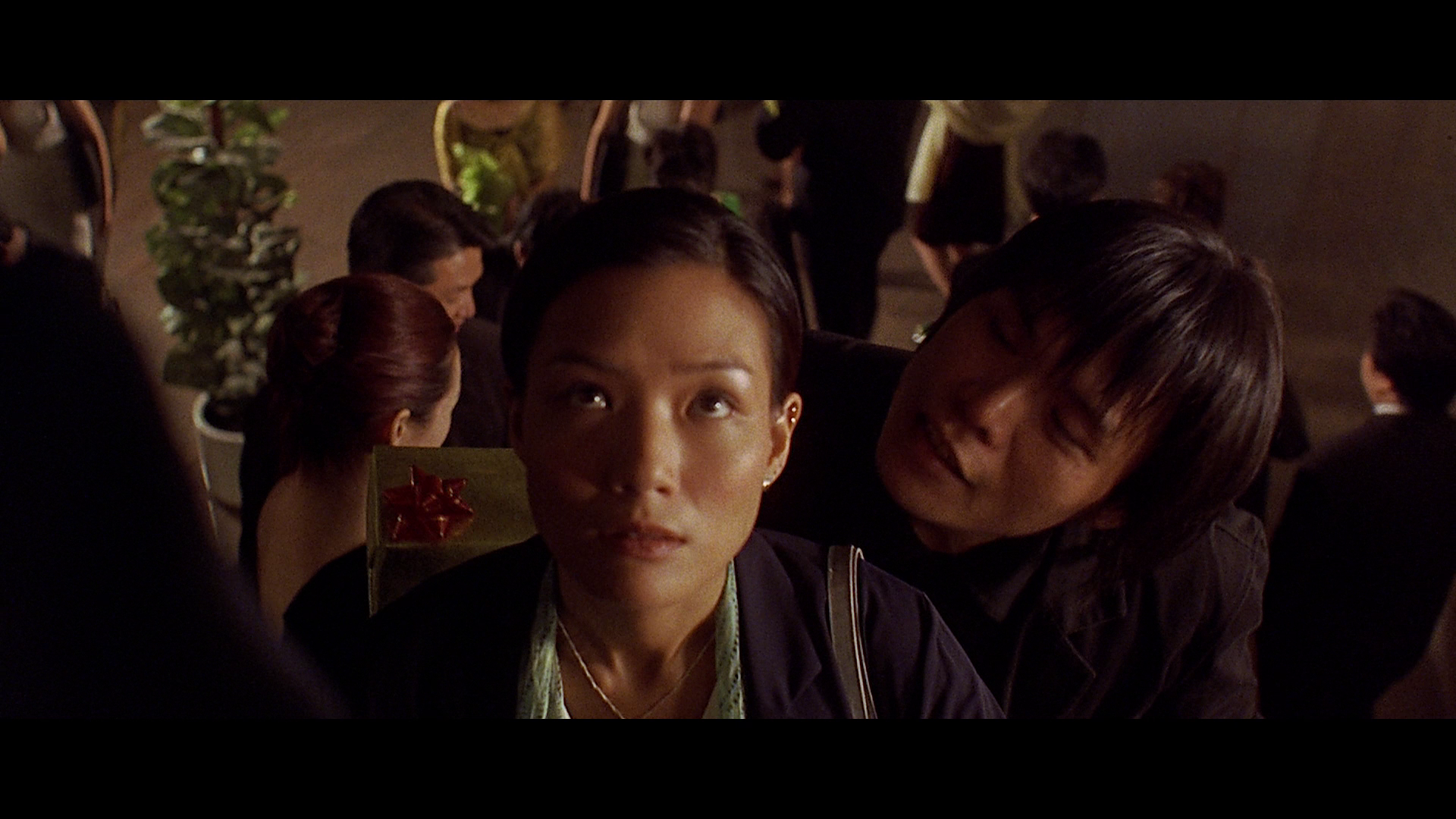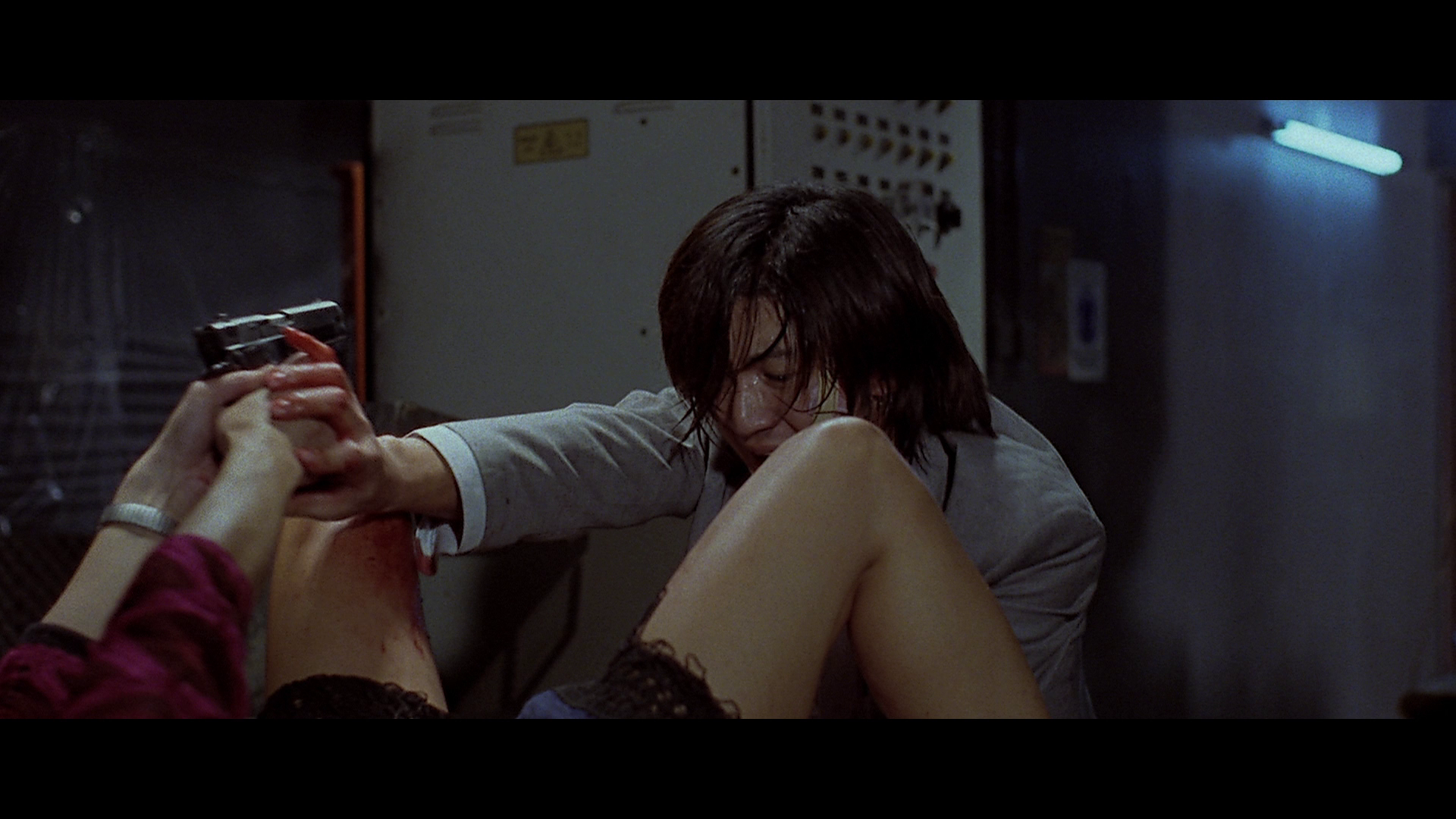Last Updated on December 14, 2020 by rob
Young bodyguard Tyler (Nicholas Tse) and former mercenary Jack (Wu Bai) become friends, then enemies, then friends again in order to protect the heavily pregnant women they love – Ah Hui (Candy Lo) and Ah Jo (Cathy Tsui) – from a gang of South American killers known as the Angels. When Jack kills their leader under the noses of Tyler and his boss Uncle Ji (Anthony Wong), both of whom have been hired as bodyguards by the Angels, Tyler makes his way to Jack’s home in a vast apartment block to settle the score only to find himself caught in a massive firefight between Jack and the Angels.
Playful, thrillingly kinetic action drama told in a dreamy, almost elliptical style. Jack and Tyler (the former trying to raise enough money to look after the lesbian cop he accidentally knocked up after a drunken one night stand nine months earlier, the latter on the warpath after his former comrades try to blackmail him into a hit by threatening his pregnant wife) are really likeable because everything they do here is essentially done to protect the women in their lives. The sight of Lo’s implacably hostile female cop gradually thawing in the face of Tyler’s repeated kindnesses (even though she doesn’t want him around he keeps pushing wads of money under her door to support the now unemployed mother-to-be) prove irresistibly sweet and Cathy Tsui as Jack’s woman gets a cracking sequence where Tyler assists her in giving birth whilst she simultaneously wields a handgun to fend off an assassin (“I can see the head!” bellows Tyler, as Ah Jo looses off several shots at an oncoming bad guy)!
And Chinese superstar Wu Bai, despite having little screen acting experience (he’s better known in Asia as a pop star) is really good as assassin, Jack. Fleeing his previous existence as a member of the Angels for a new life with Ah Jo in Hong Kong and a job as a humble butcher Bai brings a watchfulness and a quiet self-assurance to his character that’s compelling. And I loved the attentiveness he shows to his wife. There’s a moment here at a big family reunion where Ah Jo’s father refuses to invite Jack onstage with the rest of the family, poor Ah Lo’s in tears at this rejection but Jack just very tenderly whispers something to Ah Lo that gives her the strength to go up and join her family. It’s a display of intimacy between man and woman I suppose and it’s moments like this that are peppered throughout the movie and which make you feel Time and Tide has more on its mind than just slick action.
But on that level too the film really impresses. The Angels – in a refreshing change from the usual cannon fodder bad guys – display a degree of intelligence all too rare in modern movies and it makes them credible, formidable opponents. Jack’s assassination of the Angels leader in a hotel garage plays out like some lethal chess match as every move by Jack to escape the building is anticipated and countered by the pursuing Angels. Because they used to work together they know each others strengths and weaknesses. We don’t and it’s great fun watching it all play out. The action sequences emphasise tactics and strategy on both sides not merely the expenditure of vast amounts of ammunition at each other. Hark’s staging of a cat and mouse action sequence in the rabbit warren of hallways and apartments of a vast Hong Kong tower block.
In one memorable sequence his camera literally plunges with Jack and one of the Angels as the pair rappel down the outside of the building blasting away at each other. That’s a stunner as are the wire-work enhanced stunts. Hark turns his camera from observer into a dizzying participant in the action – with vertiginous speed it plunges through walls, down gun barrels, sniper scopes and through burning apartments – utilising split screens and POV shots in a way that never feels like it’s just there for effect. He doesn’t go over the top with the violence either. The result is a delightfully preposterous and compelling adventure that thrills and amuses in equal measure. One in which themes of life and hope duke it out with despair and death. The final (heartfelt) shot of two pairs of feet side by side typifies Hark’s charmingly eccentric and deeply romantic vision of men and women struggling through pain and despair to finally (yay!) get it together.



